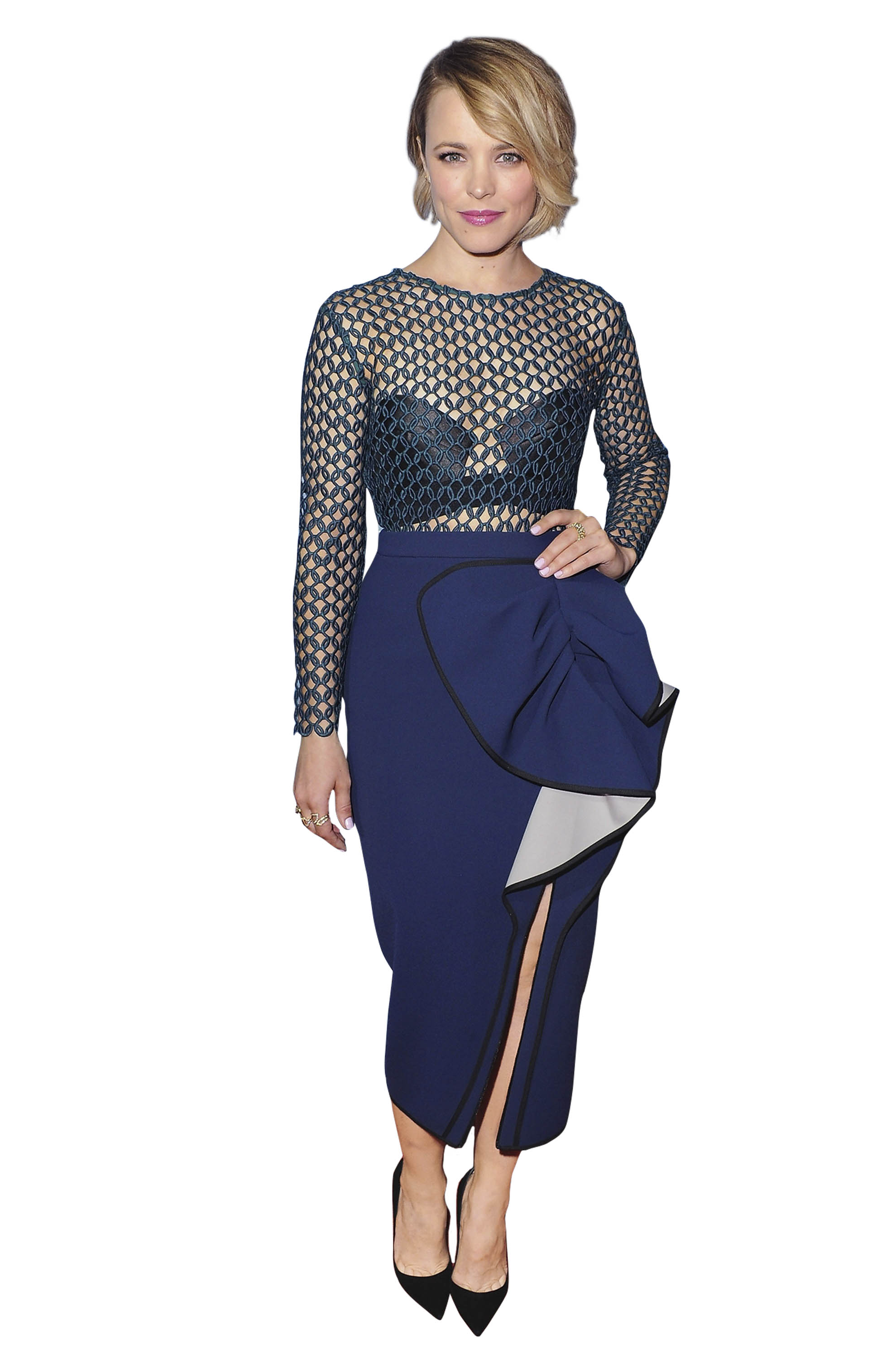
You’re known for romances. Why do darker projects now?
There aren’t a lot of gritty roles out there for women, and they’re so fun to play that everyone wants them! It’s not that I didn’t want to do them. It’s just competitive.
Your True Detective character Ani’s weapon of choice is a knife. Did you have to train in knife fighting?
I trained with a martial-arts expert, but my stunt double also specialized in prison knife fighting. She and I would tape our knuckles and practice on our little wooden target man we called Woody. We talked about what an intimate weapon it is. To be effective you have to get really close to your enemy.
Ani reminds me of your character Regina George in Mean Girls. Both are unlikable yet still sympathetic.
Regina probably would have used knives too. Neither Regina nor Ani make any apologies for themselves. There’s something really powerful and refreshing about a woman who is unapologetic. But Regina uses her powers for bad. Ani tries to use her powers for good.
Some critics called the first season of True Detective sexist. Did you worry about making Ani as strong as the men?
With any project, I don’t feel the need to just play a strong woman. I want to play someone who is flawed and interesting. But this season felt like a clean slate to me. [True Detective creator] Nic Pizzolatto and I did talk about her not trying to be feminine in this very male-dominated sector. She’s saying, “This is who I am, and if I wear a low[-cut] shirt, it’s because I want to.”
More Must-Reads from TIME
- How Donald Trump Won
- The Best Inventions of 2024
- Why Sleep Is the Key to Living Longer
- How to Break 8 Toxic Communication Habits
- Nicola Coughlan Bet on Herself—And Won
- What It’s Like to Have Long COVID As a Kid
- 22 Essential Works of Indigenous Cinema
- Meet TIME's Newest Class of Next Generation Leaders
Write to Eliana Dockterman at eliana.dockterman@time.com